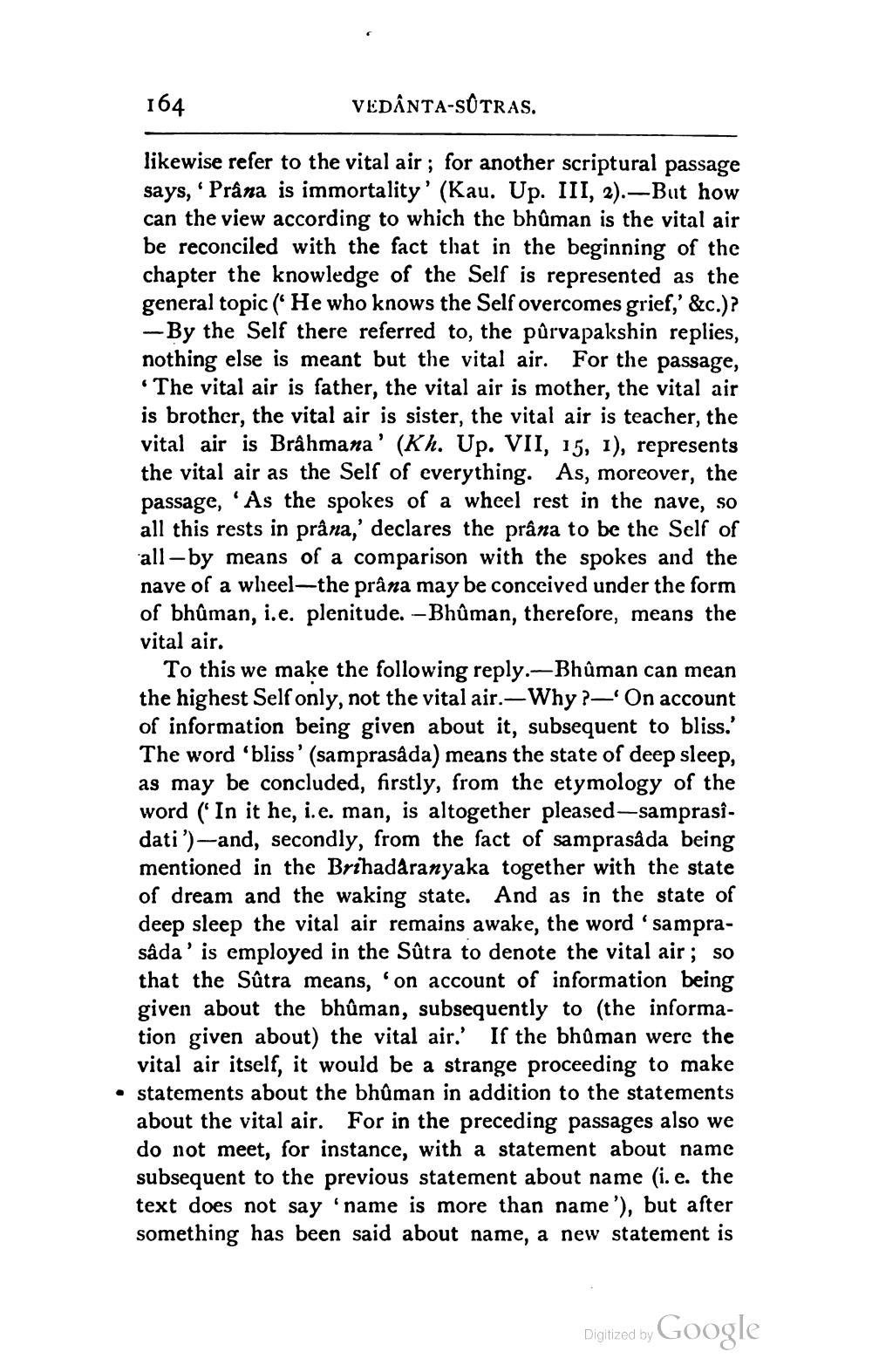________________
164
VEDANTA-SUTRAS.
likewise refer to the vital air; for another scriptural passage says, 'Prâna is immortality' (Kau. Up. III, 2).-But how can the view according to which the bhûman is the vital air be reconciled with the fact that in the beginning of the chapter the knowledge of the Self is represented as the general topic (He who knows the Self overcomes grief,' &c.)? -By the Self there referred to, the pûrvapakshin replies, nothing else is meant but the vital air. For the passage, 'The vital air is father, the vital air is mother, the vital air is brother, the vital air is sister, the vital air is teacher, the vital air is Brâhmana' (Kh. Up. VII, 15, 1), represents the vital air as the Self of everything. As, moreover, the passage, 'As the spokes of a wheel rest in the nave, so all this rests in prâna,' declares the prâna to be the Self of all-by means of a comparison with the spokes and the nave of a wheel-the prâna may be conceived under the form of bhûman, i.e. plenitude. -Bhûman, therefore, means the vital air.
To this we make the following reply.-Bhûman can mean the highest Self only, not the vital air.-Why ?- On account of information being given about it, subsequent to bliss.' The word 'bliss' (samprasâda) means the state of deep sleep, as may be concluded, firstly, from the etymology of the word ('In it he, i.e. man, is altogether pleased-samprasîdati')—and, secondly, from the fact of samprasâda being mentioned in the Brihadaranyaka together with the state of dream and the waking state. And as in the state of deep sleep the vital air remains awake, the word 'samprasâda' is employed in the Sûtra to denote the vital air; so that the Sûtra means, 'on account of information being given about the bhûman, subsequently to (the information given about) the vital air.' If the bhûman were the vital air itself, it would be a strange proceeding to make ⚫ statements about the bhûman in addition to the statements about the vital air. For in the preceding passages also we do not meet, for instance, with a statement about name subsequent to the previous statement about name (i. e. the text does not say 'name is more than name'), but after something has been said about name, a new statement is
Digitized by Google




